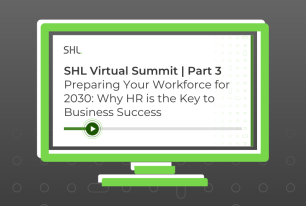The Great Return–Why Encouraging Early Retirees Back to Work Could Benefit Us All
The UK government campaigns to encourage early retirees back to work. Learn how stimulating a ‘Great Return’ can benefit not only individuals but also organizations widely.
Share
The shape of the workforce has changed significantly. Teams are more remote and distributed than ever, but changes have occurred by demographic too. Following covid, many over 50s simply did not return to work. In the UK alone, the number of 50- to 64-year-olds who are economically inactive–neither working nor job-hunting–has shot up by 375,000. Reasons for not returning include health concerns, lack of confidence working in busy environments again, and for many, experiencing a taste of autonomy, taking up new hobbies, and traveling (again!). For some family units, grandparents moved into childcare roles to support as childcare costs soared and with the cost-of-living crisis raging, families cannot afford paid-for options.
This demographic shift has wide-reaching impacts. The gaps in the workforce are being felt within organizations as job vacancies, although leveling in some markets remain high. This stifles productivity and economic growth and sectors where part-time roles are common, e.g. retail, hospitality, healthcare, travel, and manufacturing have struggled to bounce back. This is a challenge recognized by many leaders and governments. In the UK, the Government announced budgetary support to encourage early retirees (and those who cannot afford childcare) back to work.
Stimulating a ‘Great Return’ should trigger economic gains at a country level, but the benefits could be far more wide-reaching:
- Older generations bring experience and wisdom. Research shows tapping into tenured employees (and ‘general human capital’–experiences, skills, and knowledge gained through working across multiple organizations, as well as ‘firm-specific human capital–knowledge and experience specific to one organization) can bring positive results for all. The wisdom younger, largely covid-shaped populations, lack and are likely to seriously benefit from; the gentle nudges around more insignificant things, like dress codes, building rapport, and dealing with change and ambiguity. Sprinkling these into workforces can provide a real culture add.
- Personality is known to ‘mature’ with age. As we get older, on average, personality traits such as conscientiousness and agreeableness (getting on with others) as well as being able to control emotions increases. Far from the frequently shared stereotype of being grumpy and set in their ways, older generations can bring calm, composure, confidence, and a focus on doing things well. These are wonderful attributes in any workforce but can bring a competitive edge in customer-service settings. These traits also mean aging workers can quickly build trust-based relationships with colleagues, sharing their wisdom in a non-threatening, coaching style.
- Older generations are also likely to be able to offer greater flexibility. With fewer dependents, having a pre-agreed schedule may be less important. In markets of ambiguity and constant change, this is a fantastic asset to have. Being able to call upon a flexible team when demands peak can help businesses weather challenging periods and emerge stronger.
- Finally, let’s not forget the opportunity a return to work could offer to the individuals themselves. As we live longer, multi-chaptered lives, those who have retired in their fifties, might soon feel a hole in their lives. Loss of meaning, a sense of belonging, and a longing for learning new things or dealing with challenges—these elements are what so many that have exited the pandemic place greater priority on. This cohort may find they yearn for the opportunity to engage in a part of their lives that is uniquely theirs; and the bigger the gap in employment comes, the harder it could feel to return.
Far from the frequently shared stereotype of being grumpy and set in their ways, older generations can bring calm, composure, confidence, and a focus on doing things well.
Of course, a change in budgetary reform will not fix this overnight. Far from it. Employers need to play their part in enabling a return to work for older generations. Remember how it felt coming back to ‘real’ work environments following Covid? People were anxious, unsure about how things would work again. They were worried about remembering the way things are done, how to operate systems and use the equipment. Skills and behaviors felt rusty and initial interactions were clumsy and hesitant.
Draw upon those feelings and translate this into the support, flexibility, and resources this group will need to help their return feel positive. This runs all the way through the employee lifecycle, from advertising roles (do the adjectives used appeal to older applicants?); using objective assessments in hiring processes to reveal the core potential, and trainable skills, to ensure people are not excluded based on gaps in their CVs; to communications about starting work, especially the onboarding process.
Let individuals know you understand they might feel anxious, you do not expect them to walk in and hit peak performance and will support them throughout this–with mentoring, access to training, skill development, and cohorts of new colleagues to share experiences with. Your teams, company culture, business performance, and the economy will be better for it.
Contact us to learn more about how our talent acquisition solutions can help you assess, select, and hire the best talent—and prepare for the Great Return.









